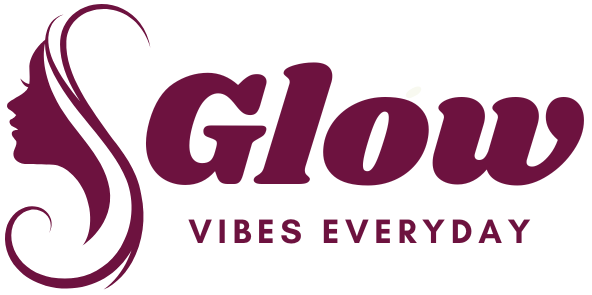Here’s the breakdown for your article on nail salons serving alcohol:
—
A. Bolded Quick Summary (Top of Article)
Yes, nail salons can serve alcohol, but it’s not as simple as pouring a drink. Regulations vary significantly by state and locality, often requiring specific liquor licenses, health code adherence, and even designated service areas. Understanding these legalities is crucial for salon owners and clients alike.
—
B. Intro Paragraph
Enjoying a glass of wine or a refreshing cocktail while getting your nails done can elevate the salon experience from a routine service to a truly relaxing treat. Many clients envision this sophisticated pairing, but the question often arises: can a nail salon serve alcohol? While the idea sounds appealing, the reality is a complex web of licensing, health regulations, and operational considerations that can make it a challenge for many establishments. If you’ve ever wondered about the legalities or simply dreamed of sipping champagne during your manicure, you’re in the right place. This guide will demystify the process, outlining what salon owners need to know and what clients can expect. Let’s dive into the details so you can understand the possibilities and enjoy your next salon visit to the fullest.
—
C. Main Article Writing Instructions
Can a Nail Salon Serve Alcohol? Your Essential Guide to Legal Sips and Stunning Nails
The allure of a perfectly manicured nail, coupled with the sophisticated pleasure of a chilled beverage, is a dream many salon patrons share. But when you settle into that comfy pedicure chair, you might wonder, can a nail salon serve alcohol? The answer isn’t a straightforward “yes” or “no.” It’s a nuanced question tied to a labyrinth of state and local laws, licensing requirements, and specific operational protocols. For salon owners, navigating these regulations can be a daunting task, while for clients, understanding the possibilities adds an extra layer to their salon experience.
This comprehensive guide is designed to illuminate the path for both salon professionals and discerning clients. We’ll explore the legal framework, practical considerations, and the steps involved if a nail salon decides to offer alcoholic beverages. Whether you’re a salon owner contemplating this addition or a client curious about enjoying a mimosa with your manicure, you’ll find the answers you need here.
Understanding the Legal Landscape: The Crucial First Step
The ability for a nail salon to serve alcohol is primarily dictated by the laws of the state and municipality in which it operates. There is no universal “yes” or “no” that applies everywhere. This is the most critical factor for any salon owner considering this business venture.
State Liquor Laws: Each state has its own Alcoholic Beverage Control (ABC) board or equivalent agency that governs the sale and consumption of alcohol. These laws often specify:
Types of Licenses: Different licenses are required for serving beer and wine versus spirits. Some states may not even permit alcohol service in establishments that primarily offer personal care services.
Zoning and Location: Restrictions might exist regarding proximity to schools, churches, or residential areas.
Hours of Operation: Limits on when alcohol can be served are common.
Local Ordinances: Beyond state laws, cities and counties often have their own ordinances that can be even more restrictive. It’s essential to research these at the local level.
Health and Safety Regulations: Alcohol service is subject to strict health and safety codes. This is particularly relevant for nail salons, where hygiene is paramount. Regulations might cover:
Separation of Services: Some laws may require alcohol service to be in a designated area, separate from where nail services are performed, to maintain strict hygiene standards.
Food Service Requirements: In some jurisdictions, serving alcohol legally may necessitate also serving food, even if it’s just snacks.
Responsible Service Training: Staff serving alcohol typically need to undergo training on responsible beverage service (RBS) to prevent over-serving and underage drinking.
Myth Buster: “It’s just like a spa serving champagne!”
While many spas do offer complimentary champagne, this is often a “gift” or part of a package, not a direct sale of alcohol. This distinction can sometimes allow them to bypass the more stringent licensing required for direct sales, depending on state laws. However, if a salon intends to sell alcoholic beverages, they will almost certainly need a proper liquor license.
The Licensing Process: Navigating the Bureaucracy
If a nail salon wishes to legally serve alcohol, obtaining the correct licenses is the most significant hurdle. This process can be lengthy, complex, and costly.
Steps Involved in Obtaining a Liquor License:
1. Research and Consultation: Identify the specific licenses required for your state and locality. Consulting with a legal professional specializing in liquor licensing is highly recommended.
2. Application Submission: Complete extensive application forms, which often include detailed business plans, financial records, and background checks for owners and key personnel.
3. Zoning and Permit Approvals: Secure necessary zoning permits and approvals from local authorities.
4. Inspections: The establishment will likely undergo inspections by health departments, fire departments, and alcohol beverage control agencies to ensure compliance with all regulations.
5. License Fees: Pay substantial application and annual renewal fees.
6. Public Notice: In many cases, the salon will be required to post a public notice of its intent to sell alcohol, allowing for public comment or objections.
Types of Licenses to Consider (Examples):
| License Type | Typical Restrictions | Suitability for Nail Salons
